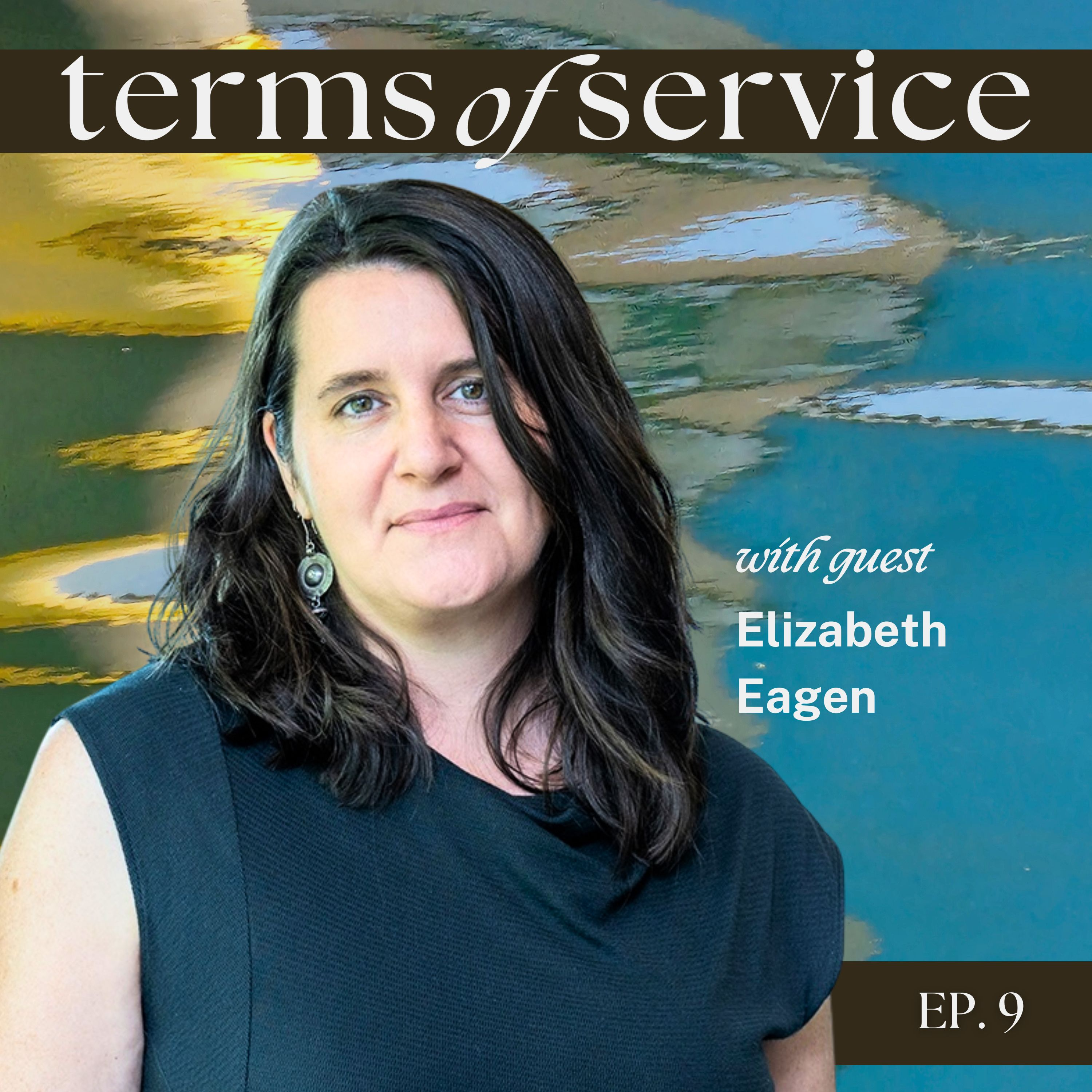Beyond the Dataset: Building Human-Centered Research
About
Episode Summary
In this episode of Terms of Service, host Mary Camacho speaks with Elizabeth Eagen, Deputy Director of the Citizens and Technology (CAT) Lab at Cornell University. Elizabeth shares how her work in human rights led her to explore the impact of emerging technologies on civil society, and how citizen science can be used to shape better digital spaces. Together, they discuss algorithmic bias, data ownership, community-driven research, and how regulation often lags behind both the harm and the science. With sharp insights and powerful stories, Elizabeth unpacks the complex dynamics of platform accountability, participatory research, and digital equity.
Key Takeaways
- The CAT Lab supports communities in generating their own research questions and data to investigate online life, shifting power dynamics away from institutions.
- Effective regulation of technology (e.g. AI hiring algorithms) requires better alignment between legal timelines and scientific inquiry.
- Community-led research can influence both platform behavior and public policy—while honoring participant agency.
- The human cost of data loss or mismanagement is real—whether in human rights documentation or everyday digital life.
- Human values like mutual aid and accountability must be embedded into technological systems and policy frameworks to ensure equity and resilience.
Topics Covered / Timestamped Sections
- 00:48 – Introduction to Elizabeth Eagen and the CAT Lab’s mission: “citizen science for the internet.”
- 02:53 – Redefining research through community participation and shifting who owns the data.
- 05:39 – Institutional barriers to community-led science, including IRB processes and timeline mismatches.
- 08:50 – Real-world issues CAT Lab explores: algorithmic hiring bias, content moderation, and digital inclusion.
- 11:20 – Community impact: research results go first to participants, enabling operational improvements.
- 12:52 – Case Study: Local Law 144 and AI auditing for hiring discrimination in NYC.
- 21:00 – Regulation is often slower than technological impact—but still faster than science.
- 23:40 – Elizabeth’s journey from Human Rights Watch to building the Emerging Tech portfolio at Open Society Foundations.
- 25:00 – The responsibility to protect data as people—not just points.
- 29:48 – Tradeoffs in data ownership, portability, and government involvement.
- 35:16 – Digital identity and the folklore of “messifying” databases for privacy and security.
- 37:08 – The risks of corporate donations of tech tools to civil society—and the ethics of mutual dependency.
Guest Bio and Links
Elizabeth Eagen is Deputy Director of the Citizens and Technology Lab at Cornell University, which works with communities to study the effects of technology on society and test ideas for changing digital spaces to better serve the public interest, so that digital power is guided by evidence and accountable to the public. She was also a 2022-23 Practitioner Fellow at Stanford University’s Digital Civil Society Lab. Previously, she established and led the Emerging Technology portfolio at the Open Society Foundations’ Information Program. This initiative funded the use of emergent technologies in evidence and advocacy, building the role of knowledge management, and the use of data visualization tools, data science, statistics, and new media tactics by civil society and policymakers. She founded the Human Rights Data Initiative, and led the Urbanization Working Group, which explored urbanization and open society through programming, research, and debate. She holds an MA/MPP in Public Policy and Russian and Eastern European Studies from the University of Michigan, and a BA from Macalester College.
Resources Mentioned
- Local Law 144 - NYC legislation requiring audits for AI-based hiring tools.
- IRB (Institutional Review Board) – Systems for ethical oversight of academic research.
- Data and Society Research Institute – Partner in algorithmic accountability research.
- Open Society Foundations – Supporting rights-based civil society through tech.
Further Reading / Related Episodes
- Episode 3: "Empowerment Tech: Unlocking Customer Data for Better Choices and Better Business"
- Episode 5: Regenerating Social Fabric & Innovating Governance
- Episode 7: "Breaking the Binary: Rethinking Law, Power, and Possibility"
Call to Action
Want to know what it means to shift power in research, regulation, and digital life? Don’t miss this conversation with Elizabeth Eagen, and learn how citizen science can create more inclusive and accountable tech systems.
🎧 Listen now: Episode Link
Credits
Host: Mary Camacho
Guest: Elizabeth Eagen
Produced by Terms of Service Podcast
Sound Design: Arthur Vincent and Sonor Lab
Co-Producers: Nicole Klau Ibarra & Mary Camacho


